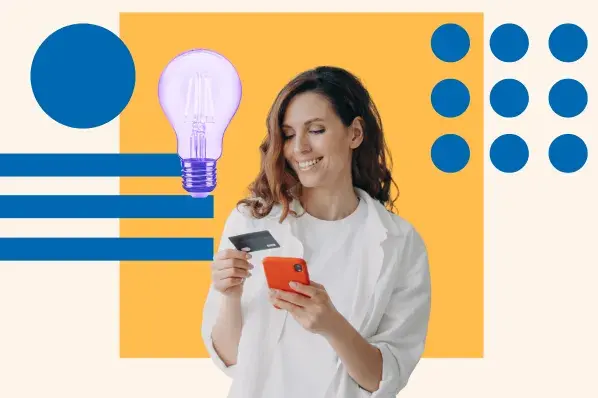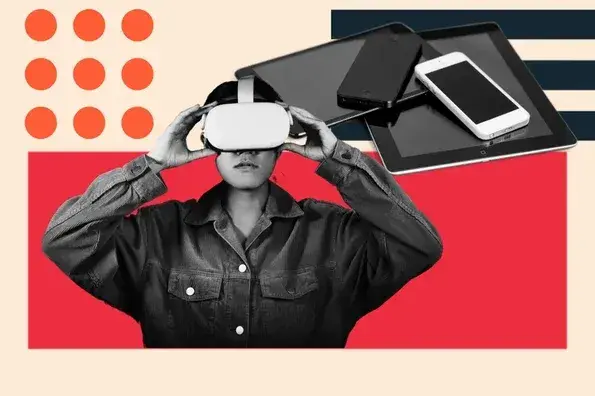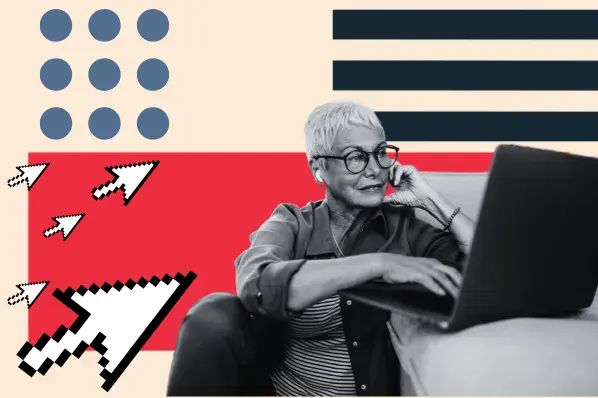To understand this shift, I spoke with Kayla Smith, the director of public relations and travel advisor for Sojourney Travel. Today, I’m sharing what I learned and giving you tips on how to make the most of the experience economy.
Table of Contents
What is the experience economy?
The experience economy focuses on selling memorable experiences rather than goods and services.
I asked Smith to give me her definition of the experience economy. She told me, “I would define it as sort of this cultural shift of people seeking out experiences over material things. I hate to bring COVID up, but that was a time when there was this sort of broad-spectrum cultural shift.”
Smith mentioned that the COVID pandemic helped people realize that some experiences are here only for a moment. And once the moment has passed, it’s gone forever. Smith said, “It’s the concept of ‘you don’t really know what you have until it’s gone.’ And so you had this generational shift of people saying, ‘Okay. When we get past this, I want to build memories. I want to live life to the fullest.’”
She continued, “I think it just created this atmosphere of people seeking out experiences more and more to the point where there is this huge economic shift where people are taking more trips.”
A travel business is the most notable example of a company that operates well in this economy. However, other kinds of businesses do well in this economy, too. We’ll look at some great examples later on. But first, let’s dig deeper into why the experience economy matters.
Why the Experience Economy Matters
Given the term, it’s easy to understand that a customer’s experience is the top priority for brands that rely on the experience economy. However, even if your brand doesn’t provide an experience, like a once-in-a-lifetime trip or a class to learn craft skills, core principles of the experience economy matter, and you can apply those same concepts to the service you provide your customers.
So, what are the core concepts of the experience economy? Good question. Let’s look at them.
1. Experiences help build relationships.
Building a relationship with your clients helps improve the customer experience, even before they spend any money with your brand.
When your brand goes above and beyond to provide a memorable customer experience, you have a higher chance of gaining a loyal customer. It’s why 31% of customer success leaders look for ways to maximize customer retention strategies.
Smith said when people ask about her job, she doesn’t tell them she’s in the travel business. Instead, she says, “I’m in the relationship business. On the business side of things, it’s the opportunity to expand the relationship, to keep it going, and to have a personal connection with each of your clients.”
Smith told me that looking for ways to improve and maintain the customer relationship is the core of the experience economy. She said, “I think it’s a great opportunity to build relationships with your consumer. It is a continuous relationship.”
For Smith, that continuous relationship makes a difference for Sojourney Travel. She said, “Consumers have the comfort of knowing that there’s a continuous person that they can reach out to and that they built that relationship as well. So on the consumer side, they don’t have to search for someone new every time they want to plan a trip.”
2. It’s easy to personalize based on customers’ needs.
Creating those lasting relationships leads to another reason the experience economy matters: personalization.
And customers notice — 62% of consumers say that personalized recommendations are better than general ones. Personalized recommendations tell your customers that you are listening to and hearing their needs. If you can personalize your offerings based on your customers’ wants and needs, you’re working to elevate the customer experience and deepen your relationships.
Smith made a good point about personalization when it comes to strengthening connections. She told me that when you build personalized relationships, customers keep returning to you. She said, “They come back to you, and they’re like, ‘Hey, I worked with you last time. I know you have these notes about me.’”
In fact, 59% of customers think businesses should use the data they collect on consumers to personalize their experiences. Moreover, 68% of customers would rather work with a brand that keeps notes than spend time repeating themselves to customer service reps.
When customers explicitly tell you what they want, pay attention. Reviewing your notes and records is an easy way to modify your services to meet your customers’ needs better.
3. Focusing on the customer experience can increase your revenue.
Remember how Smith and I mentioned that personalized relationships mean repeat customers? Brands that emphasize improving the customer experience and getting to know their clients better will have more opportunities to increase their revenue.
Amazingly, 86% of consumers are willing to pay more for a great customer experience, which can lead to increased cross-sells and upsell opportunities. In fact, 42% of businesses focus solely on the customer experience to increase the chances of these sales opportunities.
From a customer perspective, I can say this rings true. When my husband and I went on our honeymoon earlier this year, we stayed in a great little Airbnb. The hosts were super responsive and made our stay memorable. A few months later, when booking another stay, I specifically looked for rentals through our previous hosts. I knew their clean cabins provided the extra amenities my husband and I wanted.
Going the extra mile for your customers can help create more revenue opportunities, even if they’re a few months away.
Use HubSpot’s free customer journey map template.
Examples of the Experience Economy
Let’s look at some examples of brands that make the experience economy work for them.
1. Sojourney Travel

Sojourney Travel, the company Smith works for, is an excellent example of the experience economy. Sojourney Travel helps its clients book memorable travel experiences without the headache that booking and planning usually bring.
For Smith, the travel experience is more than just creating memories in new, exotic places. Instead, it’s often about the togetherness created between families during their travels. Smith said her clients are simply seeking out opportunities to be together. She said, “People are just seeking this human interaction more and more than before.”
I asked Smith why customers choose Sojourney Travel as their travel agency. She told me they focus on solving travel issues before the customer is even aware of the problem. This helps reduce the friction and frustration travelers experience, leading to a better vacation and more positive experiences.
And it leads to happy, repeat customers.
2. DIYBooks

When I think of the experience economy, I automatically think of travel brands. However, DIYBooks is an excellent example of an experience economy that goes beyond traveling.
DIYBooks connects individuals with ghostwriters to help tell their personal stories. According to Barbara Basbanes Richter, founder of DIYBooks, they “help people write their life stories through a guided journey of memory, reflection, and storytelling.”
I asked Richter why DIYBooks works. She told me, “Writing is both thinking and feeling — it’s how we make sense of our experiences. At DIYBook, we guide writers through this process, helping them uncover memories and connect stories in ways they hadn’t expected. When writers share their completed books with families and friends, they often spark conversations that might never have happened otherwise.
“Stories that seemed ordinary become touchstones for deeper family connections. This transformation from ‘writing a book’ into ‘discovering and sharing your life story’ makes DIYBook part of the experience economy. We’re not selling a writing platform; we’re helping people preserve their stories in ways that matter.”
Like Smith and Sojourney Travel, DIYBooks is in the business of building relationships — both with its customers and between its customers’ families.
3. Declare to Dare

Debbi Sluys, a vision board expert and founder of Declare to Dare, helps her clients create the life of their dreams. Her vision board classes allow participants to develop connections to their deepest wants and desires. Sluys’s approach to her classes intentionally creates a welcoming and inclusive space to dream. Plus, she provides participants with the tools to make their dreams a reality.
Sluys’s business is a unique experience, and her local tourism board took notice. Sluys told me, “I’m in Ontario, Canada. Our municipality approached me as an experience for their tourism offers. So on the website, it has me, and then it has me connected with one of our local boutique hotels as well as a local brewery.”
She said, “And then it becomes a whole experience for a girls’ weekend because people are looking to do, to create an experience, to create that memory. And so what they receive with me is definitely the experience at the moment, but then it carries on afterward because they actually have something tangible they’re going to take home, and I’ve taught them how to use it.”
4. Flygreen

In my opinion, Flygreen is another great example of the economy of experience, especially for travelers who want to travel conveniently and in style.
Flygreen offers flyers a personalized chartered jet experience. Travelers can be in the air in as little as four hours, enjoying their preferred amenities made possible by the help of Flygreen’s aviation directors.
When I asked Pascal Couture-Trembaly, vice president of operations at Flygreen, why the customer experience is central to the brand, he told me it’s more than customer satisfaction. It’s efficiency, too.
Couture-Trembaly said, “At Flygreen, customer experience means delivering more than just a flight — it’s about offering unmatched efficiency and thoughtful expertise. For us, this translates to ensuring that a customer can make an inquiry and be ready to take off within four hours. In private aviation, time is a luxury our customers value far more than a glass of champagne or a leather seat.”
He said, “Exceptional service involves understanding the purpose of every trip and seamlessly matching it with the ideal aircraft. A fishing expedition requires something entirely different from an in-flight business meeting, and our job is to make those decisions effortless for our clients.”
How to Make the Most of the Experience Economy
- Listen to your customers.
- Dig deep into your customer’s “why.”
- Promote the human connection.
It’s important to remember that customer experience transcends far beyond brands that fit neatly into the experience economy. What I mean by that is even if your brand doesn’t sell a direct experience, like a hotel stay, a guided tour, or a private class, you can still benefit from the concepts that make the experience economy great.
Here’s how.
1. Listen to your customers.
Smith told me the biggest way to make the experience economy work for your brand is to “focus on the relationships. Listen to the people.”
She said, “All in all, you’re not selling a product. You’re selling yourself and your services. You’re selling an experience to the client. You’re selling memories and the opportunity of togetherness.”
When you approach customer experience from a blind perspective, providing the experience your customers want and need can be challenging. This is why open conversation and dialogue is critical.
2. Dig deep into your customer’s “why.”
As you create opportunities to listen to your customers, take some time to understand why they are spending money with your brand.
Smith told me that it’s vital to understand why a customer is seeking out your services. Digging into their “why” is how you can provide the best, most personalized experience.
If you’re unsure of their reasonings, ask the deep questions. Smith said it’s as easy as asking them why they’re seeking out your services. Send a customer survey or contact your clients just to catch up and ask if you can do anything to support them. You might be surprised at how easy it is to tailor the experience when you clearly understand their needs.
3. Promote the human connection.
If I learned anything through my master's of education program, it’s that connections are a basic human desire. I appreciate brands that focus on human-to-human interaction, and I think it’s one of the top takeaways of why the experience economy works so well.
According to Smith, it’s what people want to experience with a brand. She told me, “You know, I think people seek experiences because of the overall human connection that they desire.”
She said, “I think that they are going to want more of that because it is a basic human desire to connect with others and other like-minded people. When you feed into that when you talk to people, get an idea of what they’re looking for, and really form these relationships, you’re going to have a successful business model.”
Focus on the Experience
As I learned by chatting with Smith, consumers seek opportunities for experiences and memories.
No matter your brand, whether you sell an experience like DIYBooks or goods and services, listening to your clients will help you create a better customer experience. A positive customer experience will keep your clients coming back for more, helping to increase your revenue and bottom line.
Customer Experience



![hubspot customer journey map template]](https://53.fs1.hubspotusercontent-na1.net/hubfs/53/experience-economy-2-20250103-5872672.webp)



![Is The Customer Always Right? [What It Means + Why It Matters]](https://53.fs1.hubspotusercontent-na1.net/hubfs/53/customer-is-always-right-origin-1-20250202-6448090.webp)





![14 Best Practices for B2B Customer Experience [New Data]](https://53.fs1.hubspotusercontent-na1.net/hubfs/53/b2b-customer-experience_2.webp)